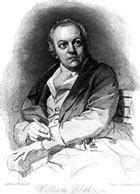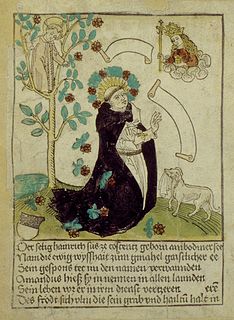A Quote by Edgar Allan Poe
There are some secrets which do not permit themselves to be told. Men die nightly in their beds, wringing the hands of ghostly confessors, and looking them piteously in the eyes - die with despair of heart and convulsion of throat, on account of the hideousness of mysteries which will not suffer themselves to be revealed. Now and then, alas, the conscience of man takes up a burden so heavy in horror that it can be thrown down only into the grave. And thus the essence of all crime is undivulged.
Related Quotes
When we see the many grave-stones which have fallen in, which have been defaced by the footsteps of the congregation, which lie buried under the ruins of the churches, that have themselves crumbled together over them; we may fancy the life after death to be as a second life, into which man enters in the figure, or the picture or the inscription, and lives longer there than when he was really alive. But this figure also, this second existence, dies out too, sooner or later. Time will not allow himself to be cheated of his rights with the monuments of men or with themselves.
There are two men in each one of us: the scientist, he who starts with a clear field and desires to rise to the knowledge of Nature through observations, experimentation and reasoning, and the man of sentiment, the man of belief, the man who mourns his dead children, and who cannot, alas, prove that he will see them again, but who believes that he will, and lives in the hope – the man who will not die like a vibrio, but who feels that the force that is within him cannot die.
The last chapter in any successful genocide is the one in which the oppressor can remove their hands and say, 'My God, what are these people doing to themselves? They're killing each other. They're killing themselves while we watch them die.' This is how we came to own these United States. This is the legacy of manifest destiny.
For some reason or other man looks for the miracle, and to accomplish it he will wade through blood. He will debauch himself with ideas, he will reduce himself to a shadow if for only one second of his life he can close his eyes to the hideousness of reality. Everything is endured-disgrace, humiliation, poverty, war, crime, ennui-in the belief that overnight something will occur, a miracle, which will render life tolerable.
Thou shalt understand that it is a science most profitable, and passing all other sciences, for to learn to die. For a man to know that he shall die, that is common to all men; as much as there is no man that may ever live or he hath hope or trust thereof; but thou shalt find full few that hath this cunning to learn to die. I shall give thee the mystery of this doctrine; the which shall profit thee greatly to the beginning of ghostly health, and to a stable fundamental of all virtues.
The victims of ennui paralyze all the grosser feelings by excess, and torpify all the finer by disuse and inactivity. Disgusted with this world, and indifferent about another, they at last lay violent hands upon themselves, and assume no small credit for the sang froid with which they meet death. But, alas! such beings can scarcely be said to die, for they have never truly lived.
Society can give its young men almost any job and they'll figure how to do it. They'll suffer for it and die for it and watch their friends die for it, but in the end, it will get done. That only means that society should be careful about what it asks for. ... Soldiers themselves are reluctant to evaluate the costs of war, but someone must. That evaluation, ongoing and unadulterated by politics, may be the one thing a country absolutely owes the soldiers who defend its borders.
Death is a vast mystery, but there are two things we can say about it: It is absolutely certain that we will die, and it is uncertain when or how we will die. The only surety we have, then, is this uncertainty about the hour of our death, which we seize on as the excuse to postpone facing death directly. We are like children who cover their eyes in a game of hide and seek and think that no one can see them.





































